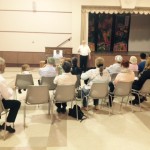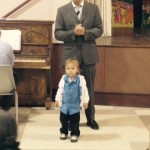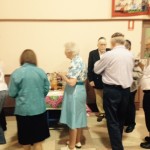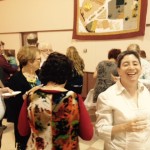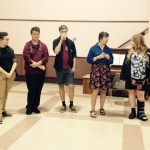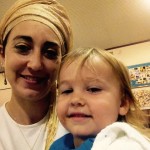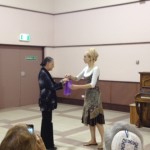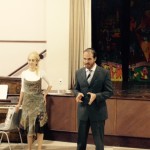Parshas Mattos-Masei: Refinement Through Travel
It seems that we have spent most of our life on the road. And although we have been parked here in Adelaide for a few years now and love it, we still make travel a part of our lifestyle. Even if we can only take a day trip, or a trip for a few days, we love to travel. Rabbi Ben and I each spent years traveling on our own before we met – and continued traveling after we got married. Maybe it’s just ingrained. Maybe it’s just part of who we are.
Sadly, many people accuse chronic travelers of running away from something. Surely we keep on the move because something is chasing us or because we don’t want to face reality! Well our time in Adelaide has proven to us both a few fundamental truths – especially these: we are capable of facing “reality”… and we still love travel.
You see, travel is a process of internal refinement. I remember my first solo journeys in Europe at age 19. I stayed only in hotels or very nice hostels, places I felt were safe for a teenage girl traveling alone. By the time I met Rabbi Ben 5 years later, I was a much more savvy world traveler. Female and alone in South America, I didn’t book my hotels in advance. I stayed in hostels for $5/night, with no hot water and no heating, even in the bitter cold. I had toughened up.
India, which I traveled with Rabbi Ben just a couple months after our wedding, is the ultimate destination if you are seeking personal awareness and growth. Whatever your mishegas is, India will rub at your sore spot until it is red and raw, until you can stand it no more. Even little aspects of your personality that you did not know about will surface, blazing, for the world to see. If you want to know yourself and have the chance to grow as a person and work on yourself, I recommend you go to India.
So it is no surprise to me that this week’s parsha focuses on the journeys made by the Jews. Travel is a process of internal growth and refinement. The Jews spent 38 years in one spot – which means that in just 2 years, the Jews moved 41 times. How grueling and uncomfortable that must have been! To pack and unpack, to wander in the desert, unsure of when and where you will arrive… and, once arriving, to never know when you will be told to pack up and hit the road! Imagine how tired they must have been, hot and cold, hungry and thirsty from the way, the diverted routes, the lost luggage. It sounds a lot like some journeys I have taken!
But imagine also how they must have grown. Being tired, hot, and hungry, their worst middos would have surfaced, making them aware of their own limitations, pushing them to improve themselves. So many times I have been in that position, hot and sweaty, tired, hungry, and thirsty, sitting on a dusty train or rickety bus, feeling grouchy, but consciously restraining myself from saying a mean word to a fellow passenger, or to my husband. Noting my discontent and maintaining an awareness that I must not say what is on my mind because it is not rational, not fair, not just, and just plain not the Torah thing to do is the way I can grow as a person, improve myself, and stretch myself to higher spiritual heights.
Because that’s what personal refinement is, a working to become closer to G-d. In Judaism our goal is to emulate G-d, to become more and more like Him, in whose image we are spiritually created. It is striving to meet our potential. But if we are never stretched, if we are never challenged, we will never know who we truly are deep inside, and so will not be able to overcome our own personal issues to become better people.
This week, let us all work on our own journeys of personal and spiritual growth.
Shabbat shalom!
Read more on Parshas Mattos:
Read more on Parshas Masei: It’s the Journey, Not the Destination
Read more on Parshas Mattos-Masei: Leadership is for Others, Not the Self
Read more on Parshas Mattos-Masei: Paying Our Dues
Read more on Parshas Mattos: Getting Your Priorities Straight
Read more on Parshas Masei: It’s All a Matter of Perspective
Read More

